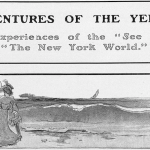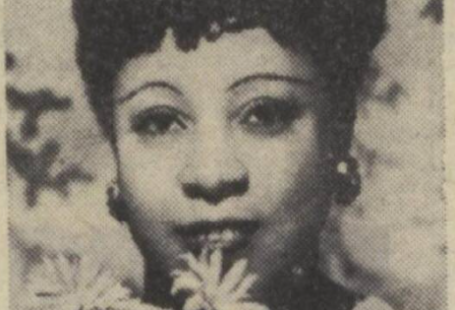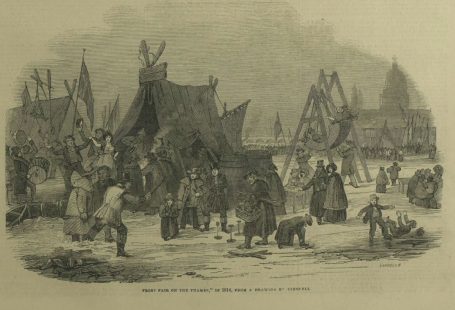This week thousands have assembled at Who Do You Think You Are? Live in Birmingham to demolish those brick walls, learn new tricks of genealogy, and hear about the latest news of family history. Most of us have searched the newspapers for obituaries, but much more can be revealed about our ancestor’s lives than the memorials at their death. Today, we will take a look at the divorce courts, bankruptcy notices, illegitimacy cases, and committee minutes.
The mid- to late nineteenth century became known as the golden age of newspapers due to increased publication from advances in printing and increased literacy. It was at this same time, that the divorce courts first appeared in the newspapers. In 1857, Parliament passed the Matrimonial Causes Act, which reformed divorce law and moved the authority to grant divorces from the ecclesiastical courts to the civil courts.
The newspapers were quick to see the potential in reporting the scandalous cases. The more serious national papers avoided the divorce courts, but the pages of the Pall Mall were filled with reports from the exciting court scenes. Due to the court costs, divorce was mostly limited to the wealthy. Everyone could read the stories of the divorces of politicians, the aristocracy, actors, and actresses.
In pursuit of a best-selling story, the newspapers made individuals’ private lives public. Consequently, we have access to intimate details of our ancestors’ lives, if they were unfortunate enough to appear in the pages. In cases of adultery, a man only had to prove that his wife committed adultery to be granted; however, for a woman, her husband’s adultery was not enough for a divorce. A divorce could only be granted if the husband also committed incest, cruelty, bestiality, or bigamy. Furthermore, only in the case of a woman’s adultery did the other party have to appear before a court. All this combined meant that divorce cases would expose the vulnerabilities and private lives of everyone involved.
On 14 February 1889, ironically Valentine’s Day, the Pall Mall reported a rare case where the court awarded £5,000 of damages to the offended husband. The woman in the case was an actress who had committed adultery. The reporter described the moment the decision was read out as, ‘the jury, amid the loud applause of the audience which awaited their decision, awarded the injured husband a solatium of £5,000’ (emphasis added). Amid the applause of the audience. The public would gather in the gallery to watch the proceedings in the same way people today watch reality television.

In another case, the petitioner of the court was Mrs Chetwynd, wife of Mr Chetwynd. Mrs Chetwynd wanted to dissolve her marriage on the grounds of adultery and cruelty. However, Mr Chetwynd claimed that his wife was the adulterer and had a relationship with her attorney and a divinity student. Both the men denied the claim and the court heard evidence of the intimate letters Mr Chetwynd sent to his female servant. The verdict was decided in favour of the petitioner, again to the sound of applause, and a decree nisi was pronounced. Decree nisi is a court order of the exact date of the end of a marriage.

Search tip
In a court report, the full name of the woman involved iS not usually reported. For example, in the above case, the woman is only referred to as Mrs Chetwynd. Her first name and her maiden name Are not given. When you search for your female ancestor, try searching for only a title and married surname.
Bankruptcy
Bankruptcies and dissolutions of companies or businesses required a public notification. These notifications were not limited to those who owned large scale companies or massive factories. In this example from the Dublin Daily Express, the bankruptcy notice is for a grocer by the name of James Treanor of Monaghan.

This series on BBC’s Who Do You Think You Are?, Sophie Raworth discovered her ancestor’s piano making company. Our researchers delved deeper into the pages of newspapers and revealed that Raworth’s ancestor’s business eventually went into bankruptcy. Once the bankruptcy notice was found, another search revealed more details about the case. An investor had called in a debt after the company yielded no profit.

Read more about Sophie Raworth’s Who Do You Think You Are? episode
A bankrupt ancestor also came up in Mary Berry’s episode of Who Do You Think You Are? in series 11. Mary’s great-great-great-grandfather, a bookseller and printer, was declared bankrupt in the Norfolk Chronicle on 14 November 1811.
Read more about Mary Berry’s Who Do You Think You Are? episode
Illegitimacy cases
If a child was born out of marriage, a woman could bring a case to court for the father to pay support for the child, a situation not dissimilar from child support payments today. However, the illegitimate or bastardy cases were recorded in the newspapers, along with other local court news. It would have be an anxious experience for a mother to have to stand before the court. Also, the character of the mother would be subjected to questioning. In some cases, the alleged father could deny the claim and details of their intimacy would be made public.
In this case, a gentleman farmer and widower in Rhondda was brought to court by his former domestic servant. The gentleman denied paternity, but the court ruled in the woman’s favour and he was ordered to pay four shillings a week.

Greg Davies, comedian and actor, learnt the name of his great-grandfather through an illegitimacy case reported in the North Wales Chronicle.
Read more about Greg Davies’ Who Do You Think You Are? episode
Remember that local cases were reported in the surrounding areas and in national papers. Do not limit your search to only one region at the beginning of your search.
Committees
Was your ancestor a member of a local or national committee? The local newspapers loved to report the minutes of local committees and new motions passed. Not all reports will list the names of all the attendees, but if your ancestor was involved in a decision you may find your ancestor’s name.
In this example, you can read a report from the Greenock Harbour committee in 1871. During the meeting, ‘Mr Brymner moved the adoption of these minutes, and Mr Walker seconded. Mr Leitch called attention to the following matter: A correspondence between Messrs Blair, Reid, & Steele and the Harbour Master.’ Just in the beginning of the report, we have found six different names. Take notice that they do not use the men’s first names, which demonstrates why it is useful to search for only a surname.

Once you know your ancestor was on a specific committee, continue searching that particular newspaper title for more meetings. Your ancestor’s name may appear again while you learn more about the committee’s activities.
Search tips
Begin the search with only your ancestor’s surname and place. You may discover relatives. Define the Year range from between your ancestor’s birth and death years to see what comes up.
Remember that local cases were reported in the surrounding areas and in national papers. Don’t initially limit your search to only one region.
Another example of committee minutes can be found in the Dundalk Examiner and Louth Advertiser. The Works Committee discussed the tenders for painting and papering Mr T Y Byrne’s office. Tenders were received from James Flynn and James Murray. These two names may not have been committee members but because their names were mentioned in the meeting we now know that they were painters.

Divorce court accounts, illegitimacy reports, bankruptcy notices, and committee meetings are just a small sample of the wide variety of information found in the newspapers about our ancestors. Begin your search today.








1 comments On Newspapers – More than obituaries
Hello. It must be about 5 years that I gave up looking for my great grandfather, John Wade Sale Clinton, as brick walls surrounded everything that I wanted to know. He was born around 1804, He died in London1880, His death certificate said he was 79 years of age. He was an Actor, just appearing in local theatres. He married Caroline Rogers in 1851 in Wakefield, and on the marriage certificate his father was named as John Bernard Sale. In looking up this Gentleman I found that he only had daughters.. 3 in fact 2 of whom were musicians., My Great Grandfather had 2 daughters who were renowned as actresses. their Portraits are in a Gallery in London. the surnames are Linden. also 2 sons Thomas the youngest and Arthur/Albert. my grandfather. Its a mystery regarding John Bernard Sale. Thomas I think and Arthur used Sale as their name but then used Clinton, which my father Arthur used too. Bye.